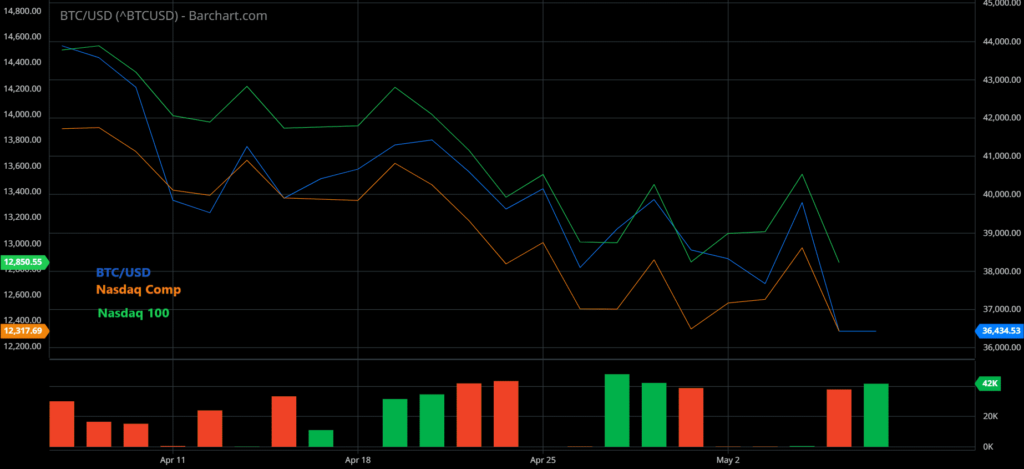Bitcoin (BTC) tumbled below a key support level of $38,000 this week, as concerns over an economic recession and rising interest rates intensified.
The token slumped over 8% in the past 24 hours, hitting a 1-1/2 month low of around $35,000. The fall was also one of its worst declines so far in 2022. The token is now about 10% above its lowest level this year, hit in Jan.
But BTC’s latest tumble also happened in lockstep with U.S. stock markets. The token has consistently tracked stock markets this year, particularly major technology stocks in the Nasdaq Composite and the Nasdaq 100 indexes.
Rising interest rates are the biggest concern for crypto and equity traders alike. The Federal Reserve has already hiked rates twice this year, and is set to raise them further to combat rampant inflation.
BTC falls in lockstep with the Nasdaq
BTC’s one-day chart shows that the token’s latest tumble began just around the U.S.-market open. Both the Nasdaq Composite and the Nasdaq 100 indexes also lost around 5% on Wednesday.
Trending Stories
Technology stocks are sensitive to rising rates as it makes their future earnings appear less attractive. Their rally through 2021 was driven largely by low interest rates, which makes it easy to borrow money and invest them into stocks- something that also boosted BTC.
As such, the token tends to behave more like a technology stock.
But this also had the added effect of drastically ramping up inflation, with the Russia-Ukraine war also adding to the issue. Central banks across the globe are now racing to calm inflation with higher rates.
Tight monetary policy is bearish for crypto
The United States isn’t the only country raising interest rates. The Bank of England recently hiked lending rates, as did central banks in Australia and India- both a surprise move. All three banks cited a growing threat to economic growth from inflation.
In such an environment, traders tend to prefer assets with more real-world exposure, such as commodities, utilities and consumer staple goods. Technology stocks are usually avoided.
As such, BTC and the crypto market are likely to see a period of weakness, at least until central banks are able to bring inflation.


